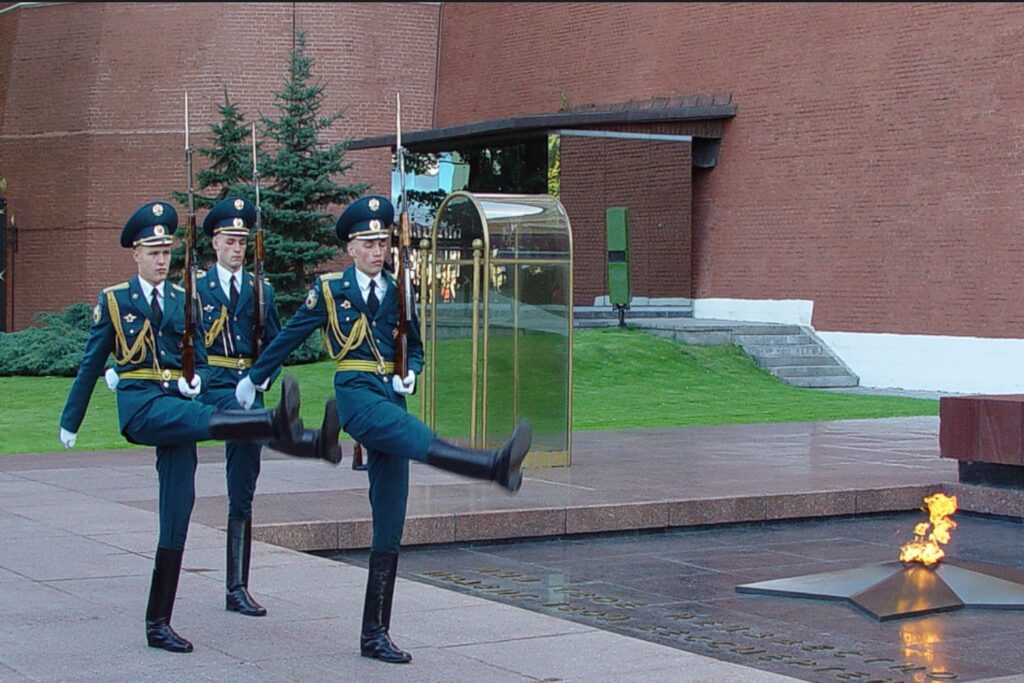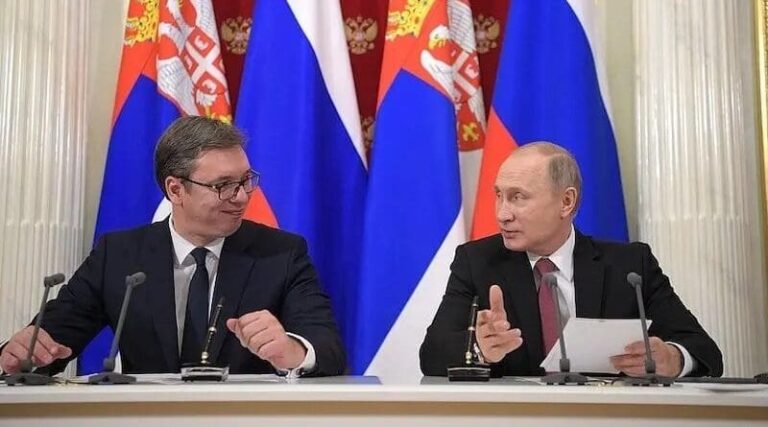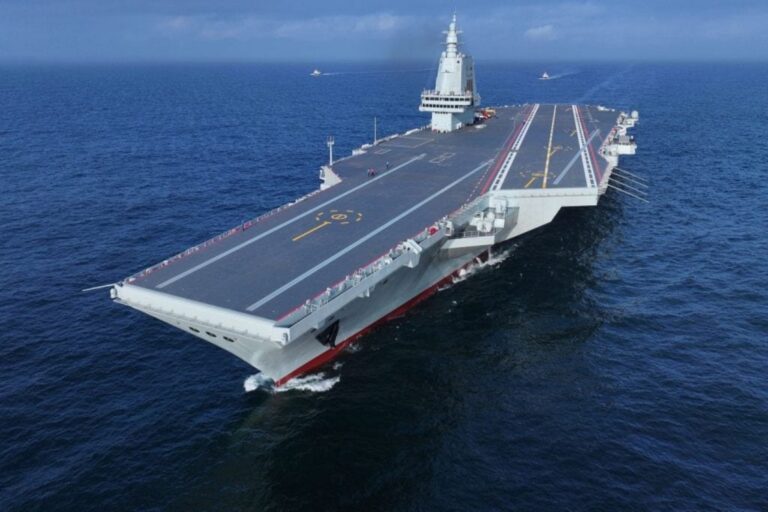History knows only very few examples of attempts to rebuild once collapsed empires, but it looks as if Vladimir Putin’s Russia is exhibiting such an attempt. More than a decade ago, I co-edited an anthology on the collapse of the Soviet Union in 1991.[1] It was anything but a bestseller; there were a few (mostly positive) reviews, but in fact it was hardly noticed or immediately forgotten. This also inevitably affected a contribution I wrote for this book about the revisionism and revanchism that was already widespread in Russia at the time, expressed in plans to restore the USSR or a “Russian empire” (however specifically named).[2] While working on this article at the time, I was astonished to realise that this topic was virtually ignored by politicians, the public, the media as well as in the fields of the humanities and social sciences (the currently very popular postcolonial theories are hardly interested in this) in Western Europe and North America – despite its enormous potential importance. The lack of interest in this issue is one of the most important factors that has led us to the situation since 24 February 2022, the beginning of the Russian large-scale attack on Ukraine.
This topic is complex. This piece presents a few theses, including some particularly characteristic quotes from the relevant discourse, and outlines options for the near future.
The Role of the Commonwealth of Independent States
Most of the former Soviet republics (the Baltic states were a special case) joined the Commonwealth of Independent States, (CIS) founded in December 1991. The so-called “post Soviet space” was immediately and explicitly claimed by Russia as a “special” or even “exclusive zone of interest”, from which certain third powers (and above all the United States, NATO, and the EU, but not China) were to be kept as far away as possible.
Under President Boris Yeltsin (1991–1999), Russia was already striving for the greatest possible so-called “integration” of the former Soviet republics in all areas – politics, economy, military, but also church, culture, media and science – under its leadership. From Moscow’s point of view, “closer integration” should result in increased control over the policies of the other CIS republics or even their active co-determination by Russia – through multilateral ties (through the CIS itself; through the Organisation of the Collective Security Treaty, a military alliance with a mutual assistance obligation; and various economic unions) as well as through bilateral treaties; Russian investments and the purchase of key infrastructure assets from the CIS republics; Russian military bases in as many former Soviet republics as possible; the assumption of Russian positions in foreign and security policy by the other former Soviet republics etc. However, with these intentions and corresponding measures, Russia has achieved very different degrees of success with the various post-Soviet republics over the course of three decades.
Back in 1994, German USSR and CIS expert Gerhard Simon cited Russian support for armed separatists–specifically in the Dniester (Moldova), Abkhazia and South Ossetia (Georgia) and Nagorno-Karabakh (Azerbajian) regions–as evidence of a restoration [of Russian influence in the post-Soviet space] from the barrels of guns,[3] when there was very little public, political, and media attention for the armed conflicts on the southern periphery of the CIS in Western Europe and North America. This is one of the most effective instruments that Russia has used against “insubordinate” CIS members such as Moldova, Georgia, Azerbaijan and Ukraine. Soon after the collapse of the USSR, Russian politicians, led by Moscow mayor Yuri Luzhkov, laid claim to the Ukrainian peninsula Crimea or, at least, the port city of Sevastopol, the main base of the Soviet and then Russian Black Sea Fleet. Luzhkov also publicly threatened to use force to “resolve the status of Sevastopol”. The “Crimea issue” did not “suddenly” become relevant in February 2014.
International documents (starting with the UN Charter and the CIS founding documents) and bilateral treaties (for example, between Ukraine and Russia) verify the territorial integrity of all states, including post-Soviet republics.
The “Empire” as a Pivotal Feature of the Post-Soviet Discourse in Russia
The USSR had not only consistently denied being an “empire” but had always loudly positioned itself in world politics as an “anti-imperialist” power. This means that it stood up against the “West”, which was always labelled “imperialist”, while the USSR supported “anti-imperialist” regimes, movements, and parties all over the world. Against this background, it is interesting that in today’s portrayal by Putin’s Kremlin, the USSR was, of course, an empire – and is presented as such in an exclusively positive light.
Election and party programmes of communist and nationalist parties, including the Communist Party of the Russian Federation (CPRF) and Vladimir Zhirinovsky’s extremely nationalist so-called Liberal-Democratic Party (LDPR), have called for the restoration of the USSR or a Greater Russia (by whatever name) since the early 1990s. The LDPR even distributed maps showing a future “Russia” that included not only the former USSR, but also Finland, Poland and Alaska, which the Tsar had sold to the U.S. in 1867. Further, at a conference hosted by the Russian Academy of Sciences in May 1996, the Swiss-born major Eastern European historian Andreas Kappeler gained the impression that the “cream of Russian historians and political scientists […] obviously agree that the collapse of the Soviet empire is only a temporary episode”.[4]
For over three decades, all serious opinion polls in Russia have shown that overwhelming majorities assess the dissolution of the Soviet Union negatively– in one form or another and under whatever name – demand its restoration as a “superpower” and “empire.” This affects all age groups almost equally, including the younger ones who did not experience the USSR, meaning that this is not (only) a matter of “nostalgia.”
Putin’s Kremlin did not create this mood, whose origins date back to the early 1990s, but fostered and exploited it. This very soon turned into veritable revanchism, which by no means only manifested itself in the loud slogans of radical right-wing and left-wing politicians, but also among “centrists” and even some “democrats.”
For the emergence and stabilisation of a so-called “Putin majority,” it was important that a large part of Russia’s population perceived the dissolution of the USSR as an “insult” and became more and more entrenched in this feeling of a violation of imperial traditions and claims. However, from a Central European point of view, it is not immediately clear why broad circles of the elite and the population in Russia, (the largest country in the world in terms of area) believe that they have too little land and why internationally recognized borders (including by Russia itself) could, indeed be changed in Russia’s favour.
This can also be proven with quotes from top functionaries of the Putin regime. In 2003 Sergei Shoigu, then-Russia’s Minister of Emergency Situations, who was also a top functionary of the Kremlin’s United Russia party and was appointed Minister of Defence in November 2012 (which he remained until May 2024), said: “We will live to see the day when we will once again have a large country within the borders of the former USSR.”[5] At the end of July 2022, after five months of the “big” war against Ukraine, Shoigu said verbatim: “There will be a Soviet Union again, and no one will go anywhere. Everyone will live in peace and harmony.”[6]
Western Reactions to the Plans to Re-establish a “Russian Empire”
After 1991, the social sciences, the humanities, the media, and practical politics in Western Europe and North America very rarely addressed official Moscow’s efforts to integrate the “post-Soviet space” under its leadership. If Western European and North American politicians took any notice at all of this “integration,” it was often based on highly questionable assumptions. In mid-1994, U.S. President Bill Clinton explicitly stated that he had no objection to the “reunification” of the former Soviet republics if this corresponded to the will of the majority in the individual nations. After a trip through the Caucasus and Central Asia in autumn 1994 (shortly before the first Russian military intervention in Chechnya in the North Caucasus), Madeleine Albright, then the U.S. ambassador to the United Nations, said: “The Russian presence in Transcaucasia, the Caucasus and pro-Russian Central Asia guarantees the observance of human rights and democracy there. I believe that Russia can be entrusted with the role of guarantor of stability on the territory of the former USSR.”[7]
At that time, Russia was seen by many in Western Europe and North America as a “regulatory power” and “honest broker” on the territory of the CIS. The EU pursued a “Russia first policy” and cared little for the other former Soviet republics (including Ukraine), not to mention a genuine lack of interest in their stability, territorial integrity and independence. The West had given Russia a virtually free hand in the separatist conflicts in the CIS (in 2008, after the “Five Day War” against Georgia, Russia even recognised the breakaway territories of Abkhazia and South Ossetia as “independent states,” officially destroying Georgia’s territorial integrity), which undoubtedly strengthened those forces in Moscow that wanted to push for more military and political interventions to expand Russian influence in the former USSR. The Western “Russia first” policy failed at the latest with the Russian invasion of Ukraine and the annexation of Crimea, the occupation of parts of the eastern Ukrainian region of Donbass in 2014.
Russia’s Colonial War Against Ukraine Since 2014 With the Escalation Since 24 February 2022
Large sections of Russian politics, society, and the media never came to terms with the fact that Ukraine has been an independent state since 1991. They also continued to regard Ukrainians as part of an “Orthodox Russian nation” and the Ukrainian language as a “Russian dialect,” The debate about whether Russians and Ukrainians (often supplemented by Belarusians) are “one people” began in the 1990s and not, as many in the West have guessed, with Putin’s now infamous essay “On the Historical Unity of Russians and Ukrainians,” which became compulsory reading for soldiers in the Russian army immediately after its publication in July 2021. Putin himself held the position that Russians and Ukrainians are “one people” on this long before. Behind this was the mostly unspoken (until 2022) but completely unambiguous, question: if the Ukrainians are actually “Russians” anyway, why do they (Ukrainians) need their own state? In addition, the Russian political class (starting under Yeltsin and quite openly under Putin) had a particular hatred of Ukraine because its rejection of a new Union treaty for the USSR in autumn 1991 meant the end of the Soviet Union.
In spring 2014, Russia annexed Crimea and unleashed a war in Donbass. Russian military and intelligence services set up the so-called “Donetsk People’s Republic” and the “Lugansk People’s Republic,” puppet states with no internal or external legitimacy. The Russian secret service agent and warlord Igor Girkin (nom de guerre “Strelkov”), who in spring 2014 ignited the war in the Donbass against the Kyiv-based government, offered the following interpretation of the events: “I remain a supporter of a united Russia. Kiev is a Russian city. I want the historically just restoration of Russia. Ukraine was, is and will remain a part of Russia. I dream of Russia returning to its natural borders, at least the borders of 1939.”[8] But for many years, Western Europe and North America preferred not to listen to such statements but to buy Russian natural gas and other energy sources. Putin used the billions in revenue to finance his regime (whose “pillars” are the secret services) and his palaces and residences, as well as to modernise the Russian army and prepare it for future wars.
The goals of Russia’s colonial war against Ukraine are as follows: the destruction of the Ukrainian state and annexation of its territory to Russia and the expulsion of a large “not reeducable” part of the population and assimilation (i.e. Russification) of the other, in other words: eradication of the Ukrainian nation on the territory of Ukraine. Since 2014, this can be seen in the Russian-occupied territories of Ukraine, from where Ukrainians are being deported or expelled and Russians are being settled. In May 2024, American historian Timothy Snyder called this “settler colonialism, happening right now.”[9] The colonisation of occupied territories with one’s own people is strictly forbidden under international law (Article 49, paragraph 6 of the Geneva Convention of 12 August 1949 on the Protection of Civilian Persons in Time of War), but Russia does not care; and Western Europe and North America do not want to or cannot do anything about this genocidal programme that the Kremlin is carrying out here in front of the eyes of the world public.
Summary and Conclusions
Post-Soviet Russia is a revisionist and imperialist superpower that is attempting to control foreign territories (such as by supporting pro-Russian separatists in several former Soviet republics) and/or conquer them by military force – and not just since 2022 or even 2014. These actions began immediately after the collapse of the USSR in 1991, but were not sufficiently noticed in Western Europe and North America. Hardly anyone in those regions was interested in the Dniester region, Abkhazia and South Ossetia or Crimea, which was admittedly perceived in Moscow as an expression as weakness (given the Russian proverb: “Slabykh byut” – the weak are beaten).
Ukraine’s role in the Russian attempts to forcibly re-establish an “empire” is essential. In the wording of the German historian Martin Schulze Wessel in his book “The Curse of Empire” from 2023: “The aggressiveness with which Russia is waging its war against Ukraine today [meaning: since 2022] reflects the challenge that this represents for Russia as an empire […]. In the Russian conception of empire, Ukraine is an indispensable element for exercising global influence.”[10]
The central lesson for practical politics from the events since 1992 is the following: if Russia’s military expansionism is not stopped in Ukraine, it will attack other post-Soviet republics and destroy their statehood. The next candidates are obvious: Moldova, Georgia and Kazakhstan (Belarus is a special case; however, it should not be difficult for Moscow to put pressure on its dictator of 30 years, Alexander Lukashenko, so that he agrees to a “referendum” on “reunification” with Russia). Russia will then attack the Baltic states. In addition, Serbia could invade Kosovo, China – Taiwan, Venezuela – Guyana, North Korea –South Korea, simply because they see that this is possible with “impunity.”
[1] Martin Malek and Anna Schor-Tschudnowskaja (eds.), Der Zerfall der Sowjetunion. Ursachen – Begleiterscheinungen – Hintergründe. Baden-Baden 2013.
[2] Martin Malek, Visionen einer imperialen Zukunft Russlands: Ein „neuer Unionsstaat“, eine „Russländische Union“ oder eine „Eurasische Union“? Martin Malek and Anna Schor-Tschudnowskaja (eds.), pp. 465-489.
[3] Gerhard Simon, Rußland: Hegemon in Eurasien? Osteuropa, no. 5, 1994, pp. 412-429, here p. 421.
[4] Andreas Kappeler, Sowjetnostalgie und nationaler Aufbruch. Beobachtungen in Moskau, Tatarstan und Tschuwaschien. Neue Zürcher Zeitung, 26 June 1996, p. 7.
[5] Quoted from: Nikolaj Ivanov, Shoigu perenes pristup nostalgii. V Permi sopredsedatel ‘Edinoi Rossii’ vyskazalsya za vosstanovlenie SSSR. Nezavisimaya gazeta, 2 December 2003, p. 4.
[6] Quoted from: Jurij Gavrilov, Shoigu: Rossiya v 1992 godu ne dala istrebit narod Yuzhnoi Osetii. Rossiyskaya gazeta, 14 July 2022, https://rg.ru/2022/07/14/shojgu-rossiia-v-1992-godu-ne-dala-istrebit-narod-iuzhnoj-osetii.html?ysclid=l69f3pdnk7388188464 (accessed 3 June 2024).
[7] Quoted from: Osteuropa, no. 1, 1996, A 10.
[8] Quoted from: Benyamin Bidder, Igor Strelkov: “Ya mechtayu o Rossii v granitsakh 1939 goda” [interview]. Profil, 22 March 2015, https://profile.ru/politics/igor-strelkov-ya-mechtayu-o-rossii-v-granitsakh-1939-goda-12418/?ysclid=lxj7j2ecug700974550 (accessed 3 June 2024).
[9] Timothy Snyder, X, 12 May 2024, https://twitter.com/TimothyDSnyder/status/1789739756269482142?t=t-9u3kwsd7YhLKtYPMVauw&s=09 (accessed 13 May 2024).
[10] Martin Schulze Wessel, Der Fluch des Imperiums. Die Ukraine, Polen und der Irrweg in der russischen Geschichte. München 2023, p. 297.




